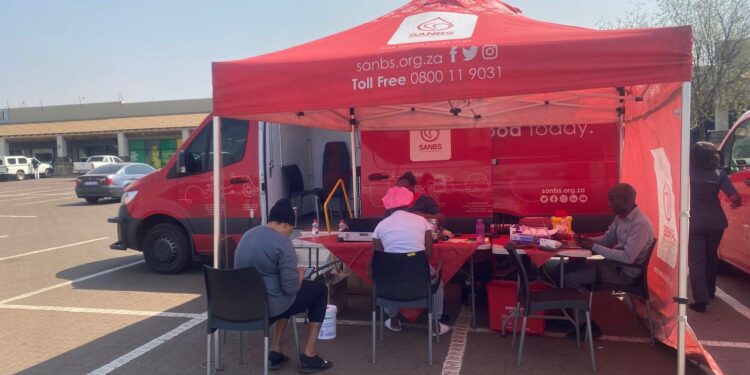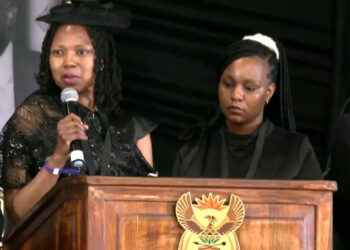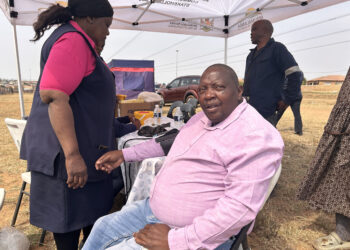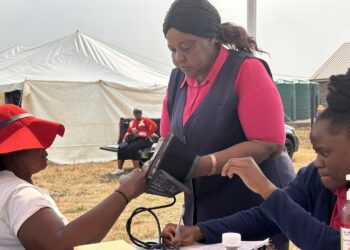DELMAS – The Victor Khanye Local Municipality recently hosted two crucial health drives, highlighting the importance of both blood donation and breast cancer screening. These initiatives aim to improve the health and well-being of the community by addressing critical needs in South Africa.
The South African National Blood Service (SANBS) conducted a blood donation drive, emphasising the urgent need for blood donations, especially from those with type O blood, which is universally compatible with other blood types. Nelson Maruping, a Donor Care Officer at SANBS, stressed the significance of these drives: “We visit many places across the country to encourage blood donations. Currently, only 1% of South Africans donate blood, and we need to increase this number to meet the demand.”
As a nonprofit organisation, SANBS provides blood free of charge, although patients in private hospitals may incur costs as part of their medical bills. Maruping advises the public to utilise public hospitals for blood services to avoid additional expenses. Mathapelo Nong, an enrolled nurse, explained the frequency of donations: “Blood donors should visit SANBS every 56 days, which is every two months.”
One community member, Abongiwe Jwaqa, shared her experience: “It’s exciting to know that I’ve saved a life with my blood. Knowing that someone who might have died will now live is truly rewarding.”
Simultaneously, Keystone Mediclinic provided breast cancer screening for women in the area using their mobile X-ray bus. The bus was stationed in Victor Khanye from 19 to 23 August 2024, offering mammogram procedures to detect potential breast cancer or lumps. Screening mammograms typically involve taking two or more X-ray images of each breast, followed by an ultrasound sonar scan to confirm the presence of any abnormalities.
Lineo Mphikeleli, a Mammographer with Keystone Mediclinic, highlighted the importance of breast cancer screening and also shared the cost of the screenings: “Our prices are R1,450 for both the mammogram and ultrasound, reduced from the original R1,850 to make breast screening more accessible to women in communities.”
These health drives underline the importance of regular medical check-ups and proactive health measures, ensuring that the community remains informed and healthy.
























